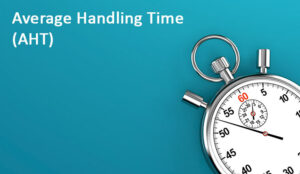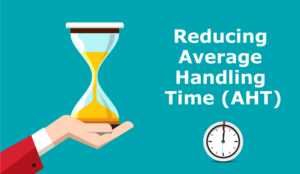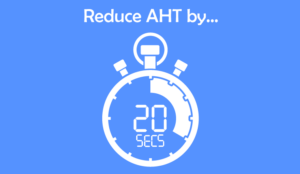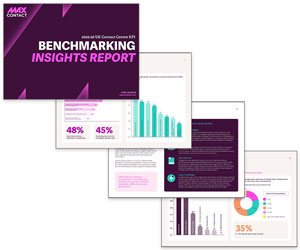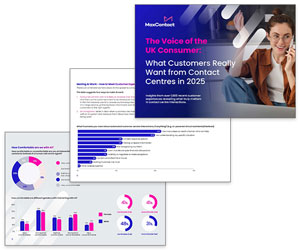Efficiency is crucial in contact centres, and Average Handling Time (AHT) is one of the key metrics used to measure it.
AHT helps contact centres understand how long interactions take, from the moment a customer is connected to an agent until the issue is resolved.
about Average Handling Time (AHT), we asked Ben Booth, CEO at MaxContact, to define it and explain how to measure it.
Video: What Is Average Handling Time and How Do You Measure It?
Watch the video below to hear Ben define Average Handling Time (AHT) and explain how contact centres can measure it:
With thanks to Ben Booth, CEO at MaxContact, for contributing to this video.
Two Types of AHT
AHT is evolving, and contact centres are now measuring it in different ways, as Ben explains:
“So there are now two average handling times we are seeing in the industry. There is a user, i.e. the agent’s average handling time, but more frequently now we are seeing the case handling time.”
By measuring both agent and case AHT, contact centres can gain a clearer picture of efficiency and identify areas for improvement, so let’s take a look at these two main types of AHT and how they are tracked:
1. Agent AHT
This is the traditional way of measuring handling time. It starts when an interaction is passed to an agent and ends when the conversation is completed.
“So, handling time is typically done from the moment the interaction was passed through to a user until they end that interaction.
However, it can also include after-call work, which is always the debate.”
It often includes after-call work (ACW), such as updating notes or processing requests, though there is ongoing debate about whether this should be counted.
2. Case AHT
More recently, contact centres have started measuring AHT across the entire customer journey, not just individual interactions – this is known as case or ticket AHT.
“Then there is the case, or ticket, average handling time, and that’s the whole customer journey.
So, if I receive an interaction, and I transfer that interaction to another colleague, then the average handling time of the customer journey would be tracked that way as opposed to an individual’s average handling time.”
It tracks handling time across multiple agents or touchpoints if a customer’s issue requires transfers or follow-ups.
If you are looking for more great insights from the experts, check out these next:
- 3 Differences Between Customer Experience and Customer Service
- Key Steps to Map Customer Journeys
- The Different Types of Dialler Explained
- Understanding Customer Experience (CX)
Author: Robyn Coppell
Reviewed by: Hannah Swankie
Published On: 13th Dec 2022 - Last modified: 25th Sep 2025
Read more about - Video, Average Handling Time (AHT), Ben Booth, Call Handling, MaxContact, Videos







